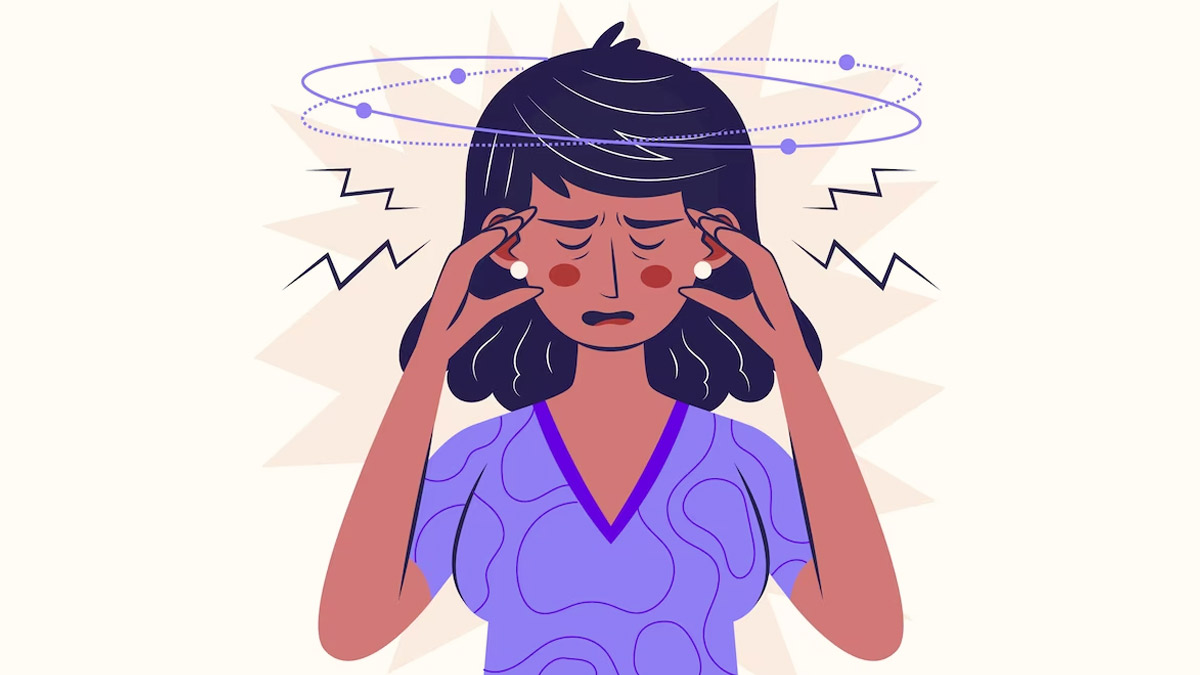
According to the Office on Women's Health (OWH), anxiety is a typical reaction to stress. It is a coping technique used by the body to stay aware during stressful situations.
Dr. Ajay Kaul, Chief of Cardiovascular Sciences at Fortis Hospital in Noida, told OnlyMyHealth that anxiety leading to palpitations is quite normal.
As per a research published in Hindawi, anxiety causes the autonomic nervous system (ANS) to respond involuntarily. The autonomic nervous system (ANS) governs functions such as heart rate, respiration, and digestion.
"Anxiety is a 'fear of the unknown', and it can be about anything, whether it is exam fear or terrible news," said Dr Kaul.
What Are Anxiety And Palpitation
Anxiety is a normal and expected emotion that many people experience. It is the body’s natural response to stress or danger and can range from mild apprehension to intense fear and panic. Physical sensations such as perspiration, shaking, or a beating heart are frequently associated with anxiety.
Also read: Layoff Anxiety: Definition, Causes & Coping Mechanism
Anxiety can exhibit in a variety of ways. Some people may feel dread, while others may feel constantly on the edge or too attentive. Some people may also get the impression that they are continuously worried about something.

Palpitation is the feeling of having a rapid heartbeat or a feeling of having skipped a beat. It can also be described as a fluttering or pounding sensation in the chest. Palpitations usually only last for a few seconds or minutes, but in some cases, they can last much longer. Palpitation can be caused by a range of physical and psychological issues, including physical activity, anxiety, panic attacks, medications, stress, and heart disease. In some cases, the cause is unknown.
Palpitations can be uncomfortable and can be accompanied by other symptoms such as chest pain, dizziness, lightheadedness, shortness of breath, and sweating.
Difference Between Anxiety And Palpitation
Anxiety and palpitations are two related but very different health issues. Anxiety is a state of fear, worry, or uneasiness caused by a perceived threat or danger. It can be accompanied by bodily signs such as elevated heart rate, sweating, and trembling. Palpitations, on the other hand, are sensations caused by the heart beating too quickly or unevenly. They can be brought on by a number of things, including stress, caffeine, or medication.

Anxiety is a mental health issue, while palpitations are physical symptoms. Anxiety is often caused by stress, fear, or worry, while palpitations can be caused by a variety of physical factors, such as caffeine, alcohol, and certain medications. Anxiety can be treated with counselling and medication, while palpitations may require additional medical attention and tests.
Also read: 6 Psychological Signs Of Social Anxiety
Anxiety can lead to palpitations, but palpitations do not necessarily indicate the presence of anxiety. Palpitations can be caused by a number of physical conditions, and they should be reviewed by a doctor to establish the root cause.
If you have any signs of anxiety, you should consult a doctor for a thorough evaluation. Your doctor may prescribe testing to rule out any underlying medical issues that are causing your palpitations.
Image credit- FreePik
Also watch this video
How we keep this article up to date:
We work with experts and keep a close eye on the latest in health and wellness. Whenever there is a new research or helpful information, we update our articles with accurate and useful advice.
Current Version